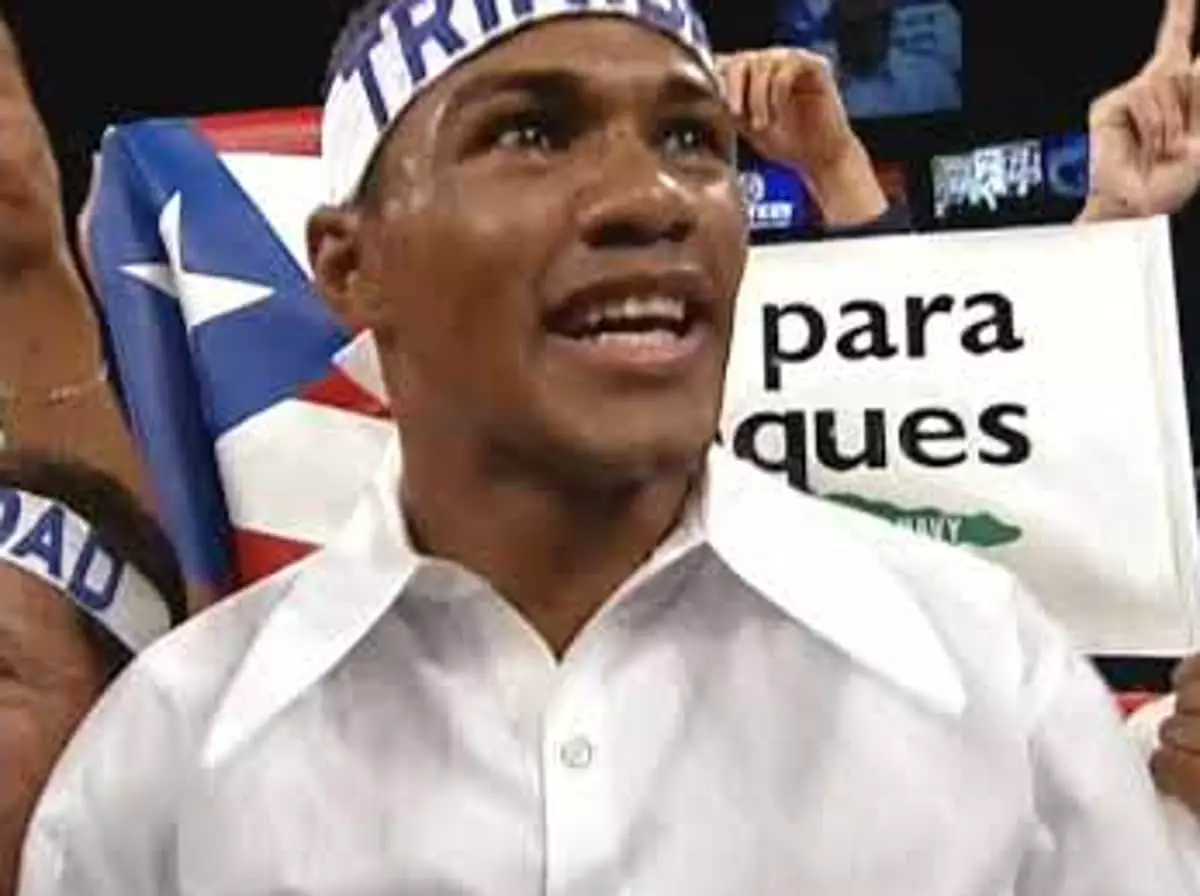BY BOXING HIT STAFF-
The bout between Felix Trinidad and Oscar De La Hoya, which took place on September 18, 1999, has been etched into the annals of boxing history not just for its dramatic face-off but also for the debate it sparked concerning the fight’s outcome. Even 25 years after the clash at Mandalay Bay in Las Vegas, boxing enthusiasts still engage in spirited discussions about the unfairness of the scoring and the integrity of the judges’ decisions. This fight serves as a critical case study of how subjective the sport can be, the psychology of the fighters involved, and the impact of scoring on a fighter’s legacy.
Leading up to this match, both fighters were at the pinnacle of their careers. De La Hoya, known as “The Golden Boy,” carried an undefeated record of 31-0 with 25 knockouts, positioning him as the reigning WBC welterweight champion and a media darling. Conversely, Trinidad, hailing from Puerto Rico, was equally formidable with a record of 35-0 and 30 knockouts, holding the IBF title at 147 pounds. Anticipation was palpable, with fans and pundits heralding this bout as a potential boxing classic, reminiscent of iconic battles like Hagler vs. Hearns. However, what transpired in the ring was more of a meticulous chess match than a thunderous slugfest.
From the first round, it became clear that De La Hoya’s strategy was to employ a tactical approach. His boxing prowess was evident as he controlled the pace and rhythm of the fight, gaining a solid lead on the scorecards. The initial nine rounds were marked by De La Hoya’s measured footwork and jabs, while Trinidad struggled to penetrate his defense. This methodical style proved effective, as De La Hoya’s confidence swelled with every round he seemingly won. However, the judges’ scorecards revealed a terrifying truth for De La Hoya—despite his perceived dominance, the fight was far closer than he thought, with scores reflecting any number of perspectives on the conflict.
As the championship rounds approached, De La Hoya’s decision to play it safe—focusing on avoiding damage rather than engaging Trinidad—turned controversial. The final rounds saw Trinidad surge forward, landing significant strikes and overwhelming an increasingly hesitant De La Hoya, who had effectively stopped his output. Trinidad’s late-game performance is often cited as the decisive factor, and it culminates in the pervasive sentiment that a fighter should never leave a match in the hands of the judges.
Upon the fight’s conclusion, both fighters expressed the belief that they had deserved victory, but it was Trinidad who was awarded the majority decision. The scorecards, revealing tallies of 115-113, 115-114, and 114-114, ignited a firestorm of criticism and disbelief among fans and experts alike. Icons like Mike Tyson openly criticized the decision, calling it a blatant injustice against De La Hoya. The debate surrounding this fight emphasizes the frailty of boxing scoring—how a fighter’s legacy can be altered by subjective judgement and how public perception can influence the narrative that surrounds a fighter.
De La Hoya’s feeling of being wronged did not simply fade away; it shaped his career going forward. The lack of a rematch further deepened the chasm of disappointment. It highlights how careers can veer off course due to contentious decision-making and how competitors must grapple with the fallout of these experiences.
In sum, the Trinidad-De La Hoya fight encapsulates the complex psychology of a sport that eternally relies on subjective interpretation. Beyond the technicalities of boxing, the fight serves as a reminder of the weight carried by honor, pride, and public opinion. The enduring discussions about the legitimacy of the judges’ scores underlie a greater truth: in boxing, as in many things in life, perceptions can often overshadow reality. So who do you believe won—De La Hoya, with his caution and craftsmanship, or Trinidad, with his tenacity? Ultimately, this question lingers, keeping the spirit of competition alive.


Leave a Reply